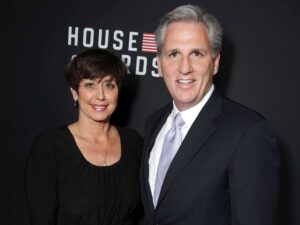family whatutalkingboutwillistyle discover fun 2024
introduction to family whatutalkingboutwillistyle
Family dynamics are a fascinating subject, often explored through various lenses—be it television shows, books, or real-life experiences. One particular lens that has captivated audiences for decades is the portrayal of family life in popular culture. A prime example of this is the classic TV show “Diff’rent Strokes,” known for its iconic catchphrase “What’chu talkin’ ’bout, Willis?” This show, and its memorable character performances, offer an interesting perspective on family relationships and the portrayal of family life in media. In this article, we’ll delve into the family dynamics depicted in “Diff’rent Strokes,” analyze its cultural impact, and explore how these dynamics reflect broader societal themes. family whatutalkingboutwillistyle
The Roots of “Diff’rent Strokes”
A Brief Overview
“Diff’rent Strokes” is a classic American sitcom that originally aired from 1978 to 1986. Created by Eric Kauffman, the show revolves around two African-American boys, Arnold and Willis Jackson, who are adopted by a wealthy white businessman, Phillip Drummond, and his daughter, Kimberly. The show’s title reflects the different backgrounds of the characters, highlighting the theme of cultural and social integration. family whatutalkingboutwillistyle
Characters and Their Dynamics
- Arnold Jackson: Played by Gary Coleman, Arnold is the younger of the two Jackson brothers. His character is known for his catchphrase, “What’chu talkin’ ’bout, Willis?” which became a defining feature of the show. Arnold’s character represents the naive and humorous side of childhood, often using his charm to navigate complex situations. family whatutalkingboutwillistyle
- Willis Jackson: Portrayed by Todd Bridges, Willis is the older brother. His character is more serious and protective of Arnold, showcasing a mature side that balances the humorous elements of the show. Willis often takes on a role similar to that of a father figure for Arnold.
- Phillip Drummond: The wealthy white businessman who adopts the Jackson brothers. Played by Conrad Bain, Drummond represents the ideal of the benevolent guardian who bridges the gap between different social classes and races. family whatutalkingboutwillistyle
- Kimberly Drummond: Phillip’s daughter, played by Dana Plato, who initially struggles with the new family dynamics but eventually grows close to the Jackson brothers.
Cultural Impact and Significance
Addressing Social Issues
“Diff’rent Strokes” was more than just a sitcom; it was a platform for addressing significant social issues of its time. The show tackled topics such as racial integration, economic disparity, and family dynamics. By bringing together characters from different backgrounds, the show aimed to highlight the commonalities that unite people despite their differences. family whatutalkingboutwillistyle
Catchphrases and Pop Culture
The phrase “What’chu talkin’ ’bout, Willis?” quickly became a cultural phenomenon. It encapsulated Arnold’s innocent confusion and became a symbol of the show’s blend of humor and heartfelt moments. The catchphrase’s popularity extended beyond the show, influencing various aspects of pop culture and becoming a part of everyday vernacular. family whatutalkingboutwillistyle
Influence on Later Shows
“Diff’rent Strokes” set a precedent for how TV shows could address serious issues while maintaining a comedic tone. Its success influenced other sitcoms and dramas, encouraging creators to explore diverse family structures and social themes with a mix of humor and empathy. family whatutalkingboutwillistyle
Family Dynamics in “Diff’rent Strokes”
The Adoptive Family Structure
One of the most compelling aspects of “Diff’rent Strokes” is its portrayal of the adoptive family structure. Phillip Drummond’s decision to adopt Arnold and Willis, and the subsequent integration of the Jackson brothers into his family, reflects a broader societal acceptance of diverse family forms. The show illustrates the challenges and rewards of blending different cultural backgrounds within a family unit. family whatutalkingboutwillistyle
Sibling Relationships
The sibling dynamics between Arnold and Willis offer a nuanced view of brotherly relationships. While they often engage in typical sibling rivalry, their bond is characterized by mutual respect and affection. Willis’s role as a protective older brother highlights the importance of familial support and the role of older siblings in guiding younger ones. family whatutalkingboutwillistyle
Parental Figures
Phillip Drummond’s role as a father figure is pivotal to the show’s narrative. His character embodies the ideal of a nurturing and supportive parent who provides stability and guidance. The show explores the complexities of parenting, especially in a blended family scenario, and underscores the importance of love and understanding in creating a cohesive family unit. family whatutalkingboutwillistyle
The Legacy of “Diff’rent Strokes”
Lasting Influence
Even decades after its original run, “Diff’rent Strokes” continues to be remembered fondly by fans and critics alike. The show’s ability to blend humor with serious social commentary has left a lasting impact on television. It paved the way for future shows to explore diverse family structures and address social issues with sensitivity and humor. family whatutalkingboutwillistyle
Reboots and Tributes
The legacy of “Diff’rent Strokes” has inspired various reboots and tributes, reflecting its enduring relevance. The show’s characters and catchphrases continue to resonate with audiences, and its impact is evident in the way it shaped the portrayal of family life in media. family whatutalkingboutwillistyle
Educational Value
For those studying media and cultural representation, “Diff’rent Strokes” serves as an important case study in how television can influence and reflect societal attitudes. The show’s handling of complex issues in a family-friendly format provides valuable insights into the role of media in shaping public perceptions.
Conclusion
“Diff’rent Strokes” remains a beloved and influential part of television history, offering a unique perspective on family dynamics through its memorable characters and engaging storylines. The show’s ability to address serious issues with humor and heart has left a lasting legacy, making it a significant cultural touchstone. By exploring the various aspects of family life depicted in the show, we gain a deeper understanding of how media can reflect and shape our views on family, diversity, and social integration.
In examining the phrase “What’chu talkin’ ’bout, Willis?” and the characters behind it, we uncover more than just a catchy line; we discover a reflection of the complexities and joys of family life. “Diff’rent Strokes” reminds us that despite our differences, the bonds of family and the value of understanding and compassion are universal.











Post Comment